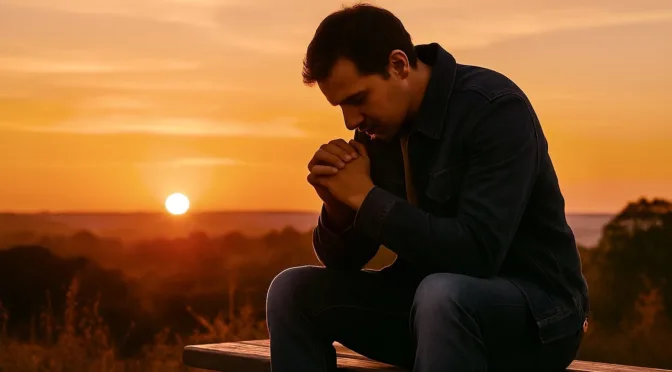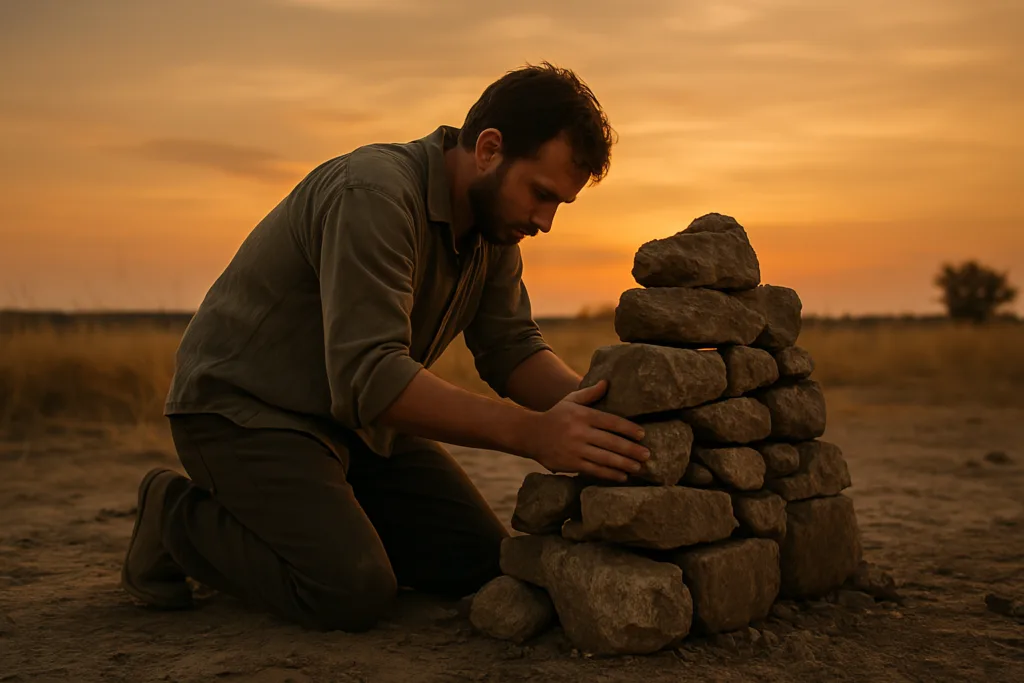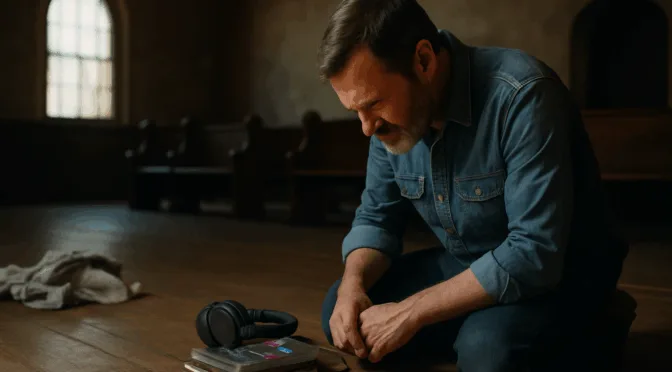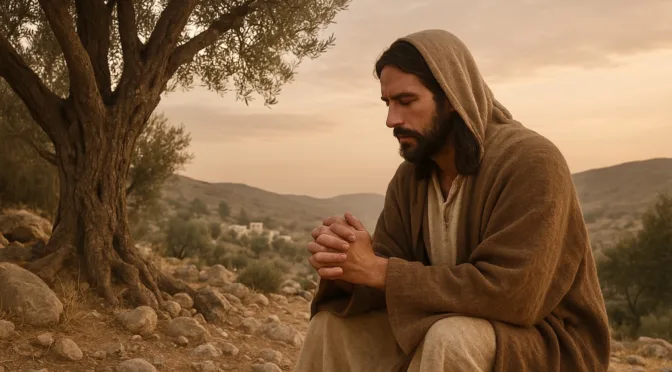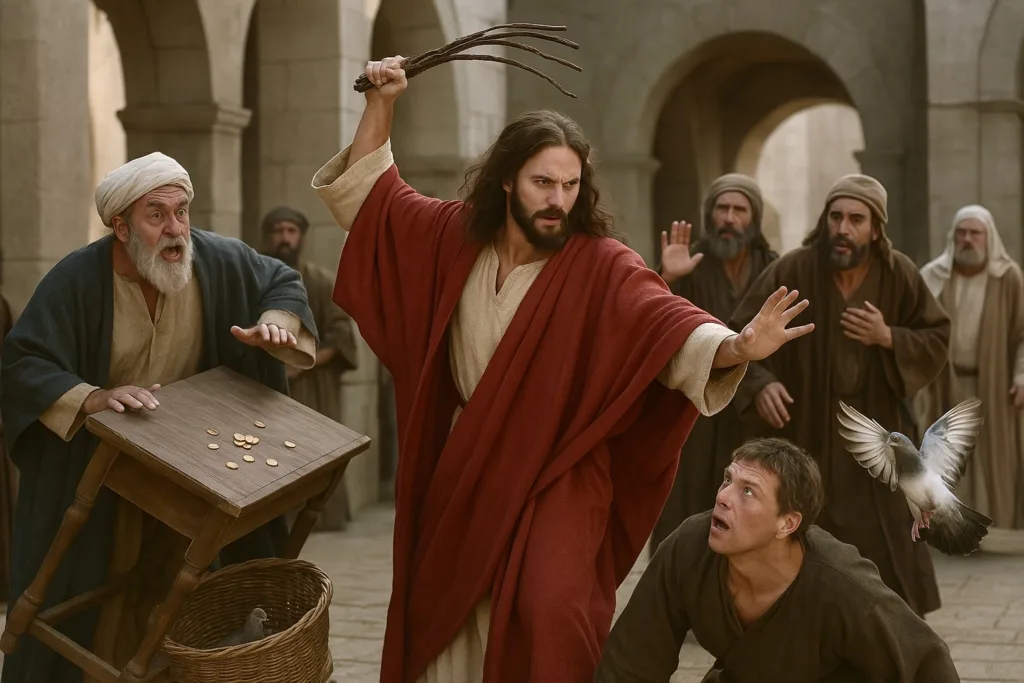Knowing Christ Through Power and Suffering
“But whatever things were gain to me, these things I have counted as loss because of Christ… that I may know Him and the power of His resurrection and the fellowship of His sufferings.” – Philippians 3:7,10 NASB
Beloved, I write to you as one who has seen, heard, and touched the Word of Life. The cross of Christ is not a relic confined to history. It is not merely the wood on which the Lord was lifted up. The cross is alive, and it calls not only for our admiration but for our participation. Many are deceived, for they have placed the cross outside themselves—external, institutional, distant. But hear me, beloved: the cross must be within you.
God is not distant. God is near. And if He is near, so must the cross be near, planted in the very soil of your heart. The cross in the heart is no ornament; it is the very instrument of transformation. It is the door to knowing the Messiah—not merely in thought, but in living experience.
A Call to True Fellowship
What is it to know Christ? Is it to gather information about Him, or to rehearse His deeds? No, it is to know Him—intimately, personally, in the fellowship of suffering and the triumph of resurrection. As it is written, “For if we have become united with Him in the likeness of His death, certainly we shall also be in the likeness of His resurrection.” (Romans 6:5 NASB)
Paul, who once boasted in his heritage, his knowledge, and his zeal, abandoned it all. “I have been crucified with Christ; and it is no longer I who live, but Christ lives in me.” (Galatians 2:20 NASB) This is the mark of those who walk in resurrection power: they first pass through death. Their pride dies. Their flesh is crucified. Their desires are laid in the tomb, that Christ might reign supreme.
The Cross is Both Death and Life
The cross in the heart is the Holy Spirit’s chisel. With each stroke, He carves away the old nature until only Christ remains. “Those who belong to Christ Jesus have crucified the flesh with its passions and desires.” (Galatians 5:24 NASB) This is not a work of the hand but a miracle of grace. Without it, there can be no true life, for “whoever does not carry his own cross and come after Me cannot be My disciple.” (Luke 14:27 NASB)
O reader, do not be deceived! The cross is not a theory to be studied but a reality to be lived. It is not merely the symbol of our faith; it is the pathway of our lives. To embrace it is to embrace Christ Himself.
The Seed Must Die
Consider the seed, small and unassuming, yet holding life within. If it clings to its form, it remains alone. But when it falls into the earth and dies, it brings forth much fruit. So too with the cross. As Yeshua said, “Unless a grain of wheat falls into the earth and dies, it remains alone; but if it dies, it bears much fruit.” (John 12:24 NASB)
The seed’s death is its surrender; the soil becomes its grave. Yet, out of that burial, life bursts forth, abundant and fruitful. So must you, beloved, fall and die to self. Only then will the life of Christ rise within you.
The Cross as Daily Bread
The cross is not a one-time event. It is daily. It is the daily bread of the disciple. “Then Jesus said to His disciples, ‘If anyone wants to come after Me, he must deny himself, take up his cross daily, and follow Me.’” (Luke 9:23 NASB)
To carry the cross daily is to die to the old self and live unto God. It is to set aside comfort, ambition, and pride, and to embrace the narrow way. “Enter through the narrow gate; for the gate is wide and the way is broad that leads to destruction, and there are many who enter through it.” (Matthew 7:13 NASB) The way of the cross is the narrow way that leads to life.
The cross in the heart leads you to the secret place where God dwells. There you will behold His glory. There you will share in His sufferings. There you will rise with Him in newness of life.
A Prayer of Surrender
Holy Father, transform me by the miraculous grace of the Holy Spirit. Plant the cross deep within my heart. Let me not glory in anything but in the cross of our Lord Yeshua the Messiah, by which the world is crucified to me, and I to the world. Teach me to embrace both the fellowship of His sufferings and the power of His resurrection. Amen.
O Cross, O Life, my secret place,
Where death gives way to endless grace.
I lay me down, that Christ may rise,
A living flame, a holy prize.
⸻




